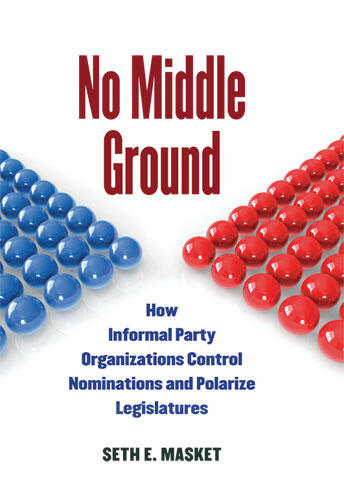No Middle Ground
How Informal Party Organizations Control Nominations and Polarize Legislatures
The new political machines fuel partisanship by supporting only candidates who follow the party's agenda
Description
“This is a fascinating book. It is one of the best studies of the ways that parties and politics get conducted in any American state. Masket shows that legislators can be perfectly content without parties that control agendas and does a terrific job of explaining the transition from free-wheeling legislators to rigidly partisan voting blocs.”
—Sam Popkin, University of California at San Diego
“No Middle Ground makes a significant contribution to the study of American parties and legislative politics.”
—Matthew Green, Catholic University of America
Despite concerns about the debilitating effects of partisanship on democratic government, in recent years political parties have gained strength in state governments as well as in Washington. In many cases these parties function as machines. Unlike machines of the past that manipulated votes, however, today’s machines determine which candidates can credibly compete in a primary.
Focusing on the history and politics of California, Seth E. Masket reveals how these machines evolved and how they stay in power by directing money, endorsements, and expertise to favored candidates, who often tend toward the ideological extreme. In a provocative conclusion, Masket argues that politicians are not inherently partisan. Instead, partisanship is thrust upon them by actors outside the government with the power to manipulate primary elections.
Seth E. Masket is Associate Professor of Political Science at the University of Denver.
News, Reviews, Interviews
Read: Review Public Opinion Quarterly | 11/9/09
Read: Review Abstract Politics | 2/2/10

